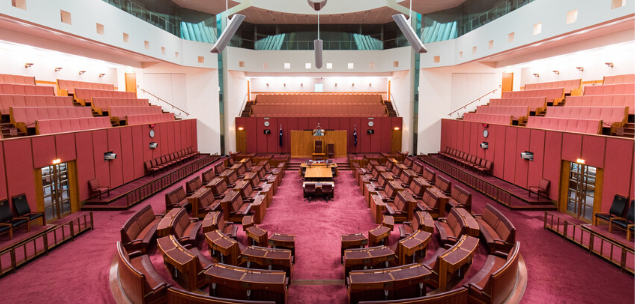During the crisis, the government has unveiled many stimulus packages to support businesses and sustain the economy, including the JobKeeper payment, the early release of superannuation and the halting of property evictions.
In dealing with this highly unprecedented event of a pandemic, the Australian government has had to quickly guide all states and territories through potential economy failure and manage the public over fears of losing their jobs, their savings and being evicted from their homes.
Public health and safety has been top of the priority list, and as such businesses have been hard hit by social distancing measures, particularly those in the hospitality industry, in retail, tourism or fitness. All companies have seen the impact in some way.
This has caused huge cash flow issues, an already-existing problem for lots of businesses, which the government has addressed with various stimulus measures. We want to know though, have those stimulus measures been effective and helpful? We asked a handful of business leaders to share their thoughts.
Tracey Dunn, associate director, RSM Australia
State and federal government stimulus measures are overall extremely generous and, in certain circumstances, have the capacity to put a business in a stronger cash position than they were before COVID-19. For these businesses, the future is positive and the cash support will place them in a strong position to bring forward projects and recover quickly when restrictions are lifted.
For small business owners, particularly those in financial distress before COVID-19 or those who have not been able to adapt and change their business model, the stimulus measures will provide little comfort, and these business owners face very difficult decisions if they find their business is no longer viable.
Complexity and confusion surrounding eligibility for JobKeeper payments, the requirement to nominate all relevant employees, along with the onus on the business owner to source funding to pay initial payments up front continues to prevent some business owners from registering.
Huon Hoogesteger, founder of Smart Commercial Solar
The spirit is right, but it doesn’t do enough for businesses, and it doesn’t do enough now. We’re seeing business owners holding onto their cash or looking to unlock cash. The tax write offs, for example, are great if you’ve paid tax but if you are reluctant to make a capital investment in order to preserve cash then you don’t get the benefit and the economy doesn’t get stimulated. So we are seeing the market having to fill the gap.
In our industry, we are unique, in that we have partnered with community-funded solar investment platform ClearSkySolar to actually buy back solar systems, at a premium, so that businesses can get cash for both survival and growth during a tough time. Whilst government is doing what it can, we also think that the market is getting more innovative and finding smart solutions that will see us through to the other side of this.
Vu Tran, GO1.com co-founder
It’s important that we give credit where it is due to governments at all levels on their ability to act quickly in delivering their support
packages. They’ve implemented legislation and measures that would otherwise have taken months or even years to achieve. The fact that they’ve been able to push through such significant changes so rapidly is commendable. On the flip side, it’s a long road to
recovery that we’re going to go through. JobKeeper and JobSeeker payments are only going to last for six months, and as the government shifts their focus towards recovery, they’re naturally going to look to invest in things like infrastructure projects. While infrastructure is important, it would be beneficial to seek out opportunities for investing into other areas of the economy.
This is a new virus for a new world, so it’s important to think about what new ways we can stimulate the economy, outside of the traditional bricks and mortar projects that Australia has turned to in the past. Start-ups by their nature focus on innovation, invest in growth, creating jobs and will play a vital role in our national economic recovery.
Bruce Perry, Chief Operating Officer, Wontok
In general, the government has done a good job given the difficult circumstances and it’s understandable that not everyone will be pleased. Giving support directly to business in the form of a wage subsidy instead of individuals was the right approach as it allowed organisations to continue paying their employees, and maintain a positive economic cycle in these trying times. The assistance will help organisations focus on restarting their business in a post-crisis world.
It’s clear that there’s a big opportunity to support casuals and non-residents as they contribute greatly to the nation’s economy and form the backbone of many sectors such as hospitality and retail. When they have money to spend, the local grocer or florist can better survive and recruit. The residual impact of neglecting these groups can be devastating and we might pay a big price in the long-run.
Keep up to date with our stories LinkedIn, Twitter, Facebook and Instagram.

